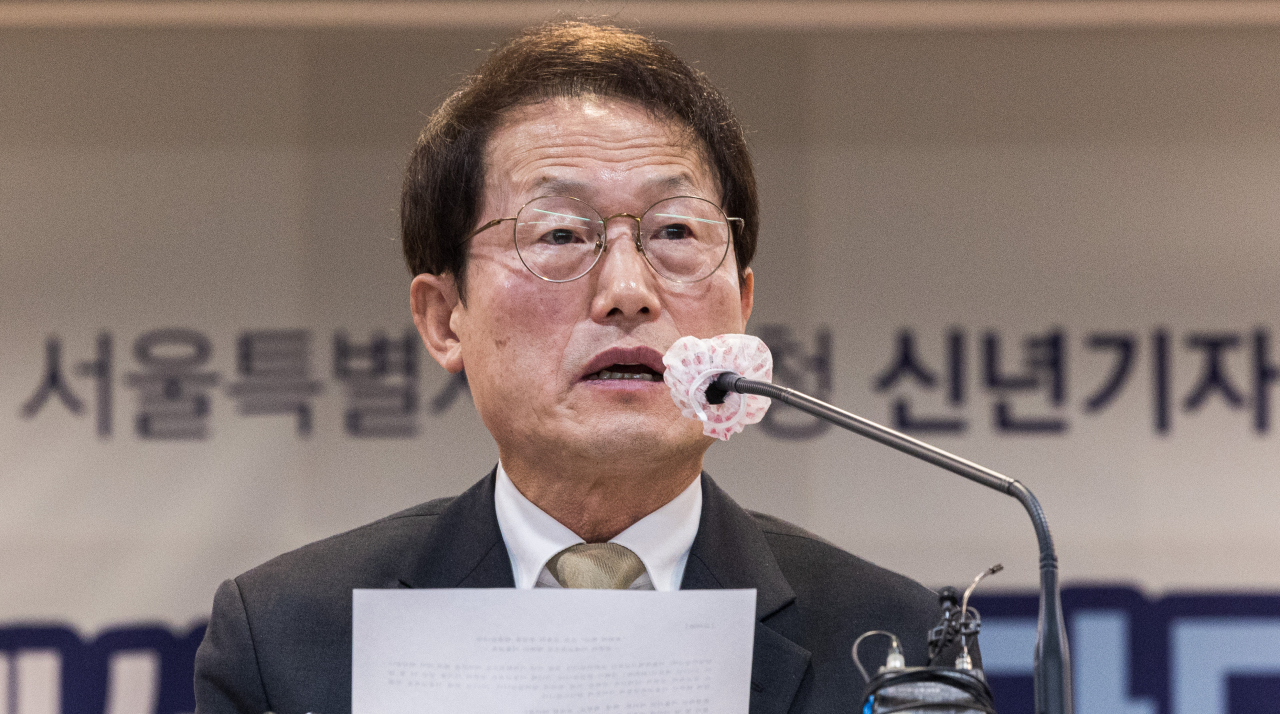
Seoul education governor Cho Hee-yeon laid out the blueprints for a “future-oriented” education system, highlighting the need to ramp up efforts for students hit by pandemic-related setbacks and technology-led education as well as narrow educational inequalities from the school starting gate.
The three-term Seoul education superintendent touted his decade-long achievements, saying the past 10 years have changed from an authoritarian education system to a democracy-based education system.
“Now, it’s time to inherit the achievements made in the past decade and change our education to a future-oriented direction to face the new challenges laid ahead in the future,” said Cho during the New Year’s press conference held at the Seoul Metropolitan Office of Education in central Seoul, Tuesday.
Under the phrase “complementary revolution,” the office aims to fulfill its responsibility to help students embrace and prepare for current and future education through five goals: higher quality of school education, more equal ways to start school, a warmer coexistence education, global education for the future and healthier and safer education.
Cho said Korea’s public education has reached the level of advanced countries and stressed the importance of having educational programs that are similar to or at the same level as developed countries.
To add value to the quality of learning processes across schools in Seoul, the education organization plans to implement more debate-based programs by expanding reading and discussion-based classes and classes where students can study social issues.
It also plans to initiate a new reading and discussion program where high school students in Seoul and researchers with doctoral degrees can take a deeper look into books. Students can improve their critical, logical and thinking abilities through such programs and promote democratic citizenship.
In line with its future-oriented education goals, the Seoul education office plans to ink MOU deals with foreign universities and create high school-university linkage programs, allowing Seoul-based students to explore a snippet of the global world.
Seoul education also plans to facilitate learning processes via Edu-tech, where technology tools are integrated into the education sector for education. It plans to expand AI learning opportunities for students and strengthen digital literacy.
As many students have experienced academic setbacks and psychological impacts during the prolonged pandemic, Seoul education said it would inject 79 billion won ($62 million) to help students receive learning support from tutors.
Pilot healthcare programs to prevent depression and suicide for students will also be implemented, and operate a Seoul Wee project, a project that aims to aid students’ healthy lives.
Also, to promote and create a more equitable educational environment, schools will provide 50,000 won ($39.5) per each first-grade student so that grade one students can purchase necessary supplies before enrolling in school.
Cho said that now is the time to think “deeper” and “wider” and that new inspiration and imagination are needed for forward-looking change.
“Under the new conditions and terms of the times, we must embrace a broader and much deeper dream that can make the hearts of parents and citizens beat,” Cho added.

![[Herald Interview] 'Amid aging population, Korea to invite more young professionals from overseas'](http://res.heraldm.com/phpwas/restmb_idxmake.php?idx=645&simg=/content/image/2024/04/24/20240424050844_0.jpg&u=20240424200058)



